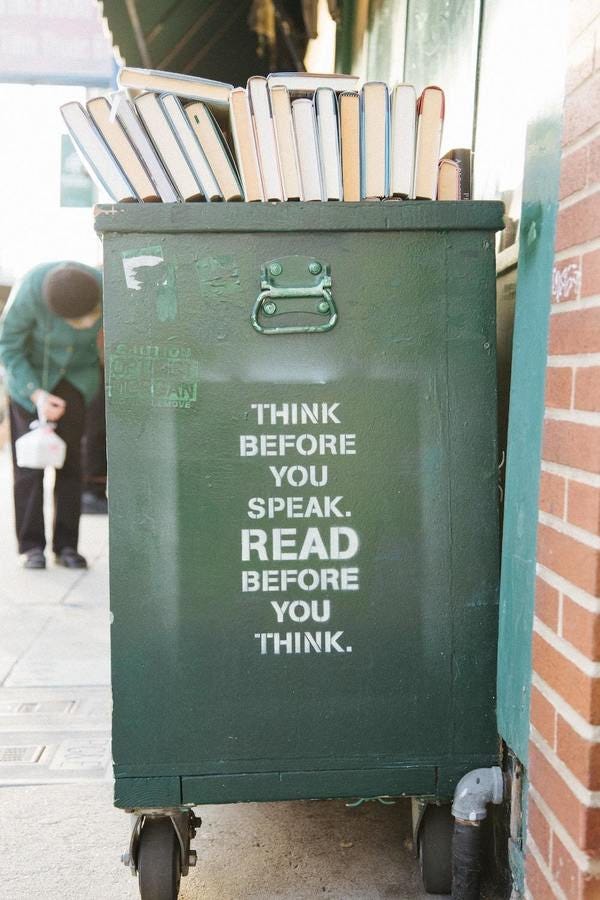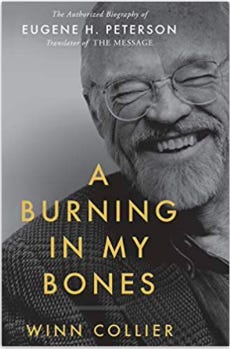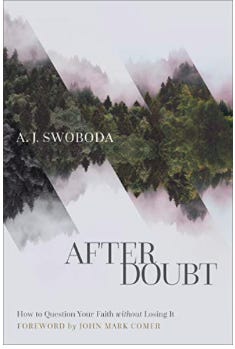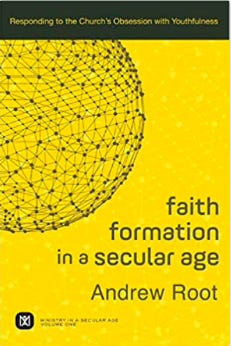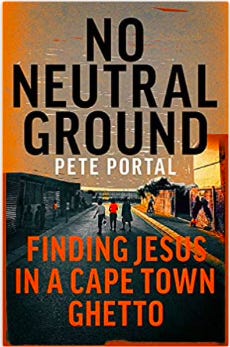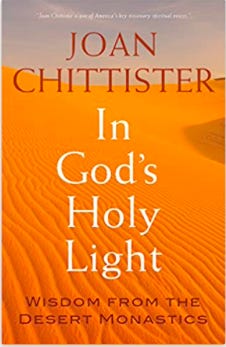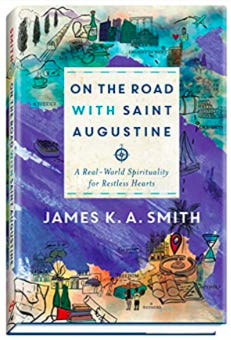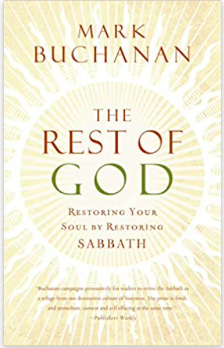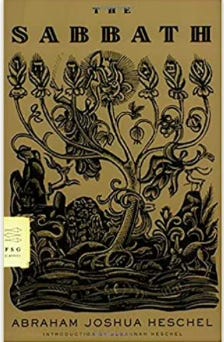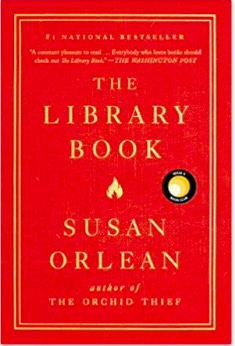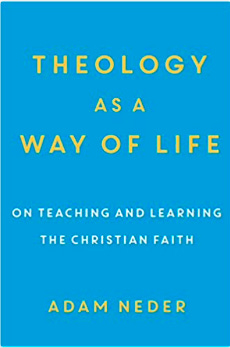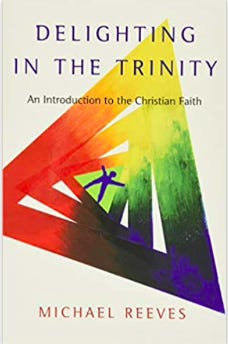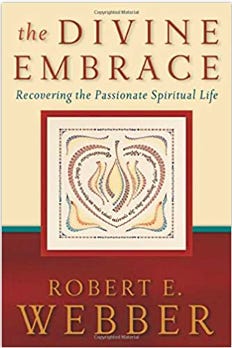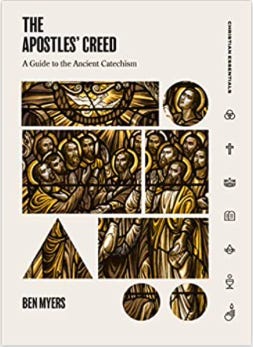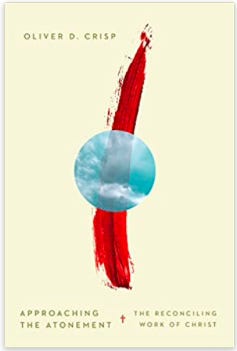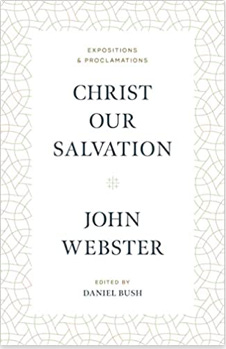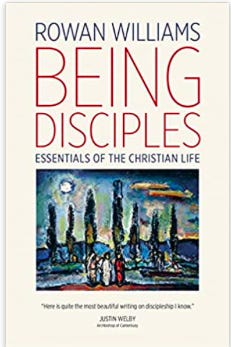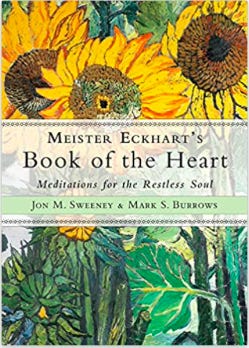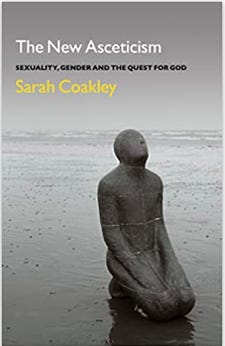The Lectio Letter - Issue #43 - All the books I read in 2021 reviewed!
“The reading of the book was a journey. There was no need for souvenirs.”
“Writing a book, just like building a library, is an act of sheer defiance. It is a declaration that you believe in the persistence of memory.”
“Destroying a culture’s books is sentencing it to something worse than death: It is sentencing it to seem as if it never lived.”
“I have come to believe that books have souls—why else would I be so reluctant to throw one away?”
― A series of Quotes from Susan Orlean’s , The Library Bookwhich I read in 2021.
Welcome to the First Edition of the Lectio Letter in 2022, this is going out to all 60 subscribers rather than the regular merry band of 25 paying members.
The Lectio Letter helps fund my book-buying habit need and in return, you get 2 articles a month, plus some personal updates, books, music, movies, and recipe recommendations. Sign up here. You can browse through the previous issues here.
Despite my earliest designs for this paid newsletter, it hasn’t turned into an endless stream of book reviews (although regular readers will notice books I’ve mentioned and reflected on over the year). I don’t think the majority of the humble audience of 25 will be too disappointed by that, but for the few of you are are here purely for book recommendations hopefully this yearly run down will scratch the itch (and here’s a link to last years).
I had mentioned last year that I had the hope to read one book a week and have failed miserably at that goal landing at 36. That being stated, (let the reader understand the need to defend myself emerges here) I thumbed through an uncounted number of books; read chapters, journal articles, web articles, and read and edited over 250,000 words written in student essays but below I’ve only included books I read the ‘old fashioned way’, front to back…
In 2022, my plan for reading is a little more thematic than numerical. I’m hoping to make more of a reading “outline”.
One of my hopes is to read through as much as I can about Lesslie Newbiggin. I came across his work accidentally but his story is compelling;
Newbigin was born in England and ordained by the Church of Scotland in 1936. He served as a missionary and bishop in India for almost 40 years. Then he and his wife returned to England (overland) in 1974 and upon settling back in the UK recognised how far western culture had moved from, what might be called, a Christian worldview. He refused the idea that the secular context was a purely neutral affair where religion was a private affair. He picked up the biblical theme of worship to acknowledge that everyone worships (or gives ultimate value) to something, and that is what they worship. So Christians have a task to reflect on what the surrounding culture worships and engage that reality missionally.
So, here we go, first up, the top 3 and then the rest…
The Top 3 Books I read in 2021
1. A Burning in My Bones: The Authorized Biography of Eugene H. Peterson, Translator of The Message by Winn Collier
I devoured Peterson’s biography in just over two days. It is a beautifully composed reflection on Peterson’s life, filled with humour, depth and mundane marvels. Peterson would never want to be revered as a saint but instead models the title of one of his books; “A long obedience in the same direction”. The author, Collier weaves a ‘warts and all’ picture of Peterson’s life picking up both his poetic sensibilities as well as his straight talking groundedness. Peterson’s life is also a wonderful study in vocation; far from an up-and-to-the-right career he, as he might put it, followed his nose. I hope to read this again and again.
“Spiritual theology is what pastors do—give themselves to getting what we know about God/Jesus lived in the round of ordinary life.”
“I was being prepared to understand a congregation as a gathering of people that requires a context as large as the Bible itself if we are to deal with the ambiguities of life in the actual circumstances in which people live them….For me, my congregation would become a work-in-progress—a novel in which everyone and everything is connected in a salvation story in which Jesus has the last word.”
#2 After Doubt: How to Question Your Faith without Losing It by A.J. Swoboda
You’ll see below that I’ve read a number of books on the modern historical progressions that have led the experience of faith to feel cross-pressured and contested which has led to wide-spread deconstruction. I’ve written a little about about that in a previous edition of the Lectio Letter here.
Swoboda, in After Doubt, has offered what I think may be the best reflection on doubt in the 21st century and some paths on and out from it. He persuasively explains how deconstruction can not be all bad, but it is not a place to stay but a place to move through. Growth inevitably leads through deconstruction to a more truthful reconstruction.
“Is there a way to walk through this deconstruction with Jesus into deeper faith? Is it possible to come out on the other side more in love with the living God? Is there a way to navigate deconstruction and have a deeper love for the church afterward? Can deconstruction make us more compassionate and gracious toward others with whom we disagree? Can it forge in us the character of God?” (p.17)
#3 Faith Formation in a Secular Age: Responding to the Church’s Obsession with Youthfulness (Ministry in a Secular Age) by Andrew Root
Winning the award for the most marked up book of the year is Andrew Root’s book on formation in a secular age. He weaves a convincing analysis of modern history leaning on Charles taylor (as the title suggests), showing how authenticity and “being yourself” emerged as modern tropes created for the sake of consumer capitalism. The second half of the book picks up Michael gorman’s new testament work on the significance of cruciformity and how, in new testament terms, we find our lives by losing them.
Runners up 2021
I was finding myself a little conflicted on rating the books I appreciated the most vs. highlighting book I thought many of you may enjoy, and so I’ve highlighted some runners up that are well worth your time.
Runner Up: Liturgy of the Ordinary: Sacred Practices in Everyday Life by Tish Harrison Warren
A few years ago this book was a major hit and for good reason. It is written wonderfully, humourously, heart-achingly and deserves the high praise it has received. Warren has been the radical christian revolutionary and has emerged into motherhood and priesthood wondering if the less radical parts of our lives can be made a habitation of the holy too.
“Everyone wants a revolution. No one wants to do the dishes.”
She walks through the mundane actions of her life, chapter by chapter honestly reflecting on the parts of her day; waking, making the bed, brushing teeth, losing keys, eating leftovers, fighting with my husband, checking email, sitting in traffic and more.
Runner Up: The Rise and Triumph of the Modern Self: Cultural Amnesia, Expressive Individualism, and the Road to Sexual Revolution by Carl B. Trueman
This book is a difficult read, not because of the prose, it is wonderfully written, but it charts out the transition in modern society in stark and worry terms. Trueman seeks to explain the historical progression which has brought us to intuitively understand, in ways unimaginable to previous generations, the phrase “I am a woman trapped in a mans body”.
Trueman takes huge strides through history sewing together the period of romanticism through to freud, the frankfurt school, Charles Taylor and all the way to Bruce Jenner. What made this even more compelling was reading it alongside a number of colleagues in the CCFD. The conversation it sparked was deeply engaging, I wish I could read every book in that format! A fuller review from someone at TGC to give you an overview of the contents of the book is available here.
The rest of the Books I read in 2021
No Neutral Ground: Finding Jesus in a Cape Town Ghetto by Pete Portal
This was my first book of the year and it was cathartic. Pete from the UK and his South African wife Sarah live in a “coloured” township about 40mins away from us. Their heartbreakingly, uplifting, honest stories about their attempts to work alongside gangsters and drugs addicts is engagingly set alongside striking and pointed social commentary about modern day South Africa. Although we work in a predominantly “black” rather than “coloured” south african context, so many of the stories and reflections mirror our own and made it a wonderfully engaging and encouraging read.
In God’s Holy Light: Wisdom from the Desert Monastics by Joan Chittister
C.S. Lewis makes the point in his famous introduction to Athanasius’ incarnation that we can only begin to escape the blindness of our age by reading another. Chittister is a Benedictine nun who writes beautifully short chapters in this book and reflects over sayings from the Desert Monastics allowing their peculiar christian vision to penetrate our own. The Desert Fathers and Mothers who lived in the Egyptian wastelands between the third and fifth centuries. She calls them “the Olympians of the spiritual life.; Here’s one of the sayings:
"Some old men came to see Abba Poeman, and said to him: ‘Tell us, when we see brothers dozing during the sacred office, should we pinch them so they will stay awake?’ The old man said to them: ‘Actually, if I saw a brother sleeping, I would put his head on my knees and let him rest.’ ”
On the Road with Saint Augustine: A Real-World Spirituality for Restless Hearts by James K. A. Smith
Jamie Smith’s most recent book takes on a different voice than his other more explicitly philosophical works (like the Cultural Liturgies series). It is more like a post-modern devotional with Augustine. Smith binds his narration to the secular lostness that grips the inner world of so many and brings Augustine alongside to give an atlas for the heart. Those not shot through with secular doubt and existential cross-pressure may feel disoriented at the tone of the book, but for the right reader I suspect it will be deeply engaging.
“Augustine might make Christianity believable for you even if you’ve heard it all, been there, done that, and left the stupid Christian T-shirt at home. Here’s a Christianity to consider before you stop believing. Augustine might make Christianity plausible again for those who’ve been burned—who suspect that the “Christianity” they’ve seen is just a cover for power plays and self-interest, or a tired moralism that seems angry all the time, or a version of middle-class comfort too often confused with the so-called American Dream.”
The Rest of God by Mark Buchanan
These past couple of years, I tried to spend every sabbath reading a book on the sabbath to be more intentionally living in the rest which God alone can give. This book is full of excellent reflections on the sabbath and the writing is well done. That being said, I didn’t connect with this book in the same way I did with Marva Dawn’s book on the subject or the mini-sabbath-genre defining Heschel’s book (see below).
The Sabbath by Abraham Joshua Heschel
This book is a classic. A jewish immigrant from a renowned rabbinic family reflects on sanctifying time instead of space, famously calling sabbath “a cathedral in time”. It is poetic and winsome, but the introduction written by his daughter after his death on the Heschel family’s practise of sabbath in modern new york is worth the price of the book itself.
God on Mute: Engaging the Silence of Unanswered Prayer by Pete Greig
Pete Greig has written a wonderfully honest and pastoral reflection drawn from his own life on unanswered prayer. As someone who has arguably sparked one of the most significant movements of prayer in the last few decades, it is not a tract from a spiritual superhero, but a wonderfully down to earth reflection on the pain of his wife’s chronic illness. I read this with friends who were themselves struggling with unanswered prayer and Greig turns towards hope in some defensible but, it seemed to me, unconvicing for our friends, ways. This book is deeply sensitive and yet there is no golden bullet answer apart from a gift of faith and hope for unanswered prayer and so be prepared for that as you recommend this to others.
Gentle and Lowly: The Heart of Christ for Sinners and Sufferers by Dane Ortlund
This book gained alot of positive reviews from almost everyone who read it. It was written to an audience deeply formed by puritanical piety who struggle with whether God is truly gentle and loving towards them. It was an enjoyable read, although some of the theological emphasis he creates rubbed me slightly the wrong way. Maybe because it was so highly recommended it did not strike me as powerfully as it seems to have done for others.
Watching the English: The Hidden Rules of English Behavior by Kate Fox
This book, lent to me by a fellower “brit abroad”, probably wins the award for most laugh out loud moments. It is a insightful anthropological account of the english. It is at it’s best when it is dissecting the subtle and not so subtle class distinctions baked into the english psyche. Being written by an academic anthropologist, it’s meatier than the much funnier observational classic “Notes from a small Island” by Bill Bryson, and at times felt repetitive. One of the stand out observations she makes is how the “lowest” and “highest” classes have so much in common; namely, they have nothing to prove.
The Library Book by Susan Orlean
Susan Orlean weaves a beautiful book together focussing on a large library fire at the Los Angeles library in 1986. She weaves her own narrative, the story of the public library service, and the difficult investigative case into the fire into a wonderfully readable book that bridges history, and crime investigation. Overall, it is an ode to books and libraries that made me want to get a library card myself!
Hearers and Doers: A Pastor’s Guide to Making Disciples Through Scripture and Doctrine by Kevin Vanhoozer
Vanhoozer is a renowned systematics scholar, but here is writing for pastors and disciplers connecting belief and practise or more straightforwardly put, living it out! He picks up Charles Taylor’s language of social imaginairy. He uses the metaphor of Christian life as a drama which has informed some of his earlier influential works. But the Christian drama is not the only story in town and unlearning other stories is as important as learning the Christian one. He encourages us to know the Christian script and act out the play as both hearers and doers.
Theology as a Way of Life: On Teaching and Learning the Christian Faith by Adam Neder
Adam Neder employs Barth’s encouragement to live a “theological existence” and so reflects on what it might mean to teach theology “In Christ”. Rather than simply look at theology or pedagogy, he brings the two together in an inspiring and cohesive vision.
Delighting in the Trinity: An Introduction to the Christian Faith Paper by Michael Reeves
If I was going to give away any book on the trinity to someone not looking for a head-hurting academic introduction it would be this one. Michael Reeves does a wonderful job of engagingly explaining the significance of knowing God as trinity in a pastoral and accesible way.
The Deep Things of God: How the Trinity Changes Everything by Fred Sanders
This is the second time I’ve read Sander’s excellent book which is a primer on the doctrine of the Trinity. Sander’s is enjoyable to read but does not hold back in this deceptively deep book (pun intended). Sanders compellingly presents the trinity as a relational reality, historical doctrine and worshipful wonder that is core to the gospel, meaning anyone who claims to value the gospel must do work to be faithfully trinitarian.
The Ascension: Humanity in the Presence of God by Tim Chester and Jonny Woodrow
Birth, life, death, resurrection; most christians can explain the basic significance of these in the life of Christ, but his ascension? This bizarre “beam-me-up-scotty” moment has left many scratching their heads and yet, as Chester argues, it is foundational to the work of Christ. Ultimately Jesus ascends as humanity in the presence of God. Here we discover how we are a part of the Ascension. As was always meant to be, humans are now in the presence of God.
“Atonement was not complete until Jesus stood before God on our behalf.”
The Divine Embrace: Recovering the Passionate Spiritual Life by Robert Webber
Although I’ve listened to a number of talks by Webber, his writing style has not really grabbed me (despite owning at least 5 other books by him). But this book is the first time I’ve read him and enjoyed it immmensely. Webber takes vast strides through christian history to name some key movements that have fundamentally changed how we relate to God (Spirituality). While those looking for an indepth, detailed and scholarly work will be disappointed, his reflections seem faithful and give the reader a clear vision of how our approaches to God have been curtailed by historical movements that become a part of modern Christianity.
The Apostles’ Creed: A Guide to the Ancient Catechism by Ben Myers
I have read this book two or three times and used it in both Teleios and now the M.A. track. I love to see how it impacts students with the significance of the creed as well as some profound paradigm shifts for how to engage faith. I can’t recommend this book enough.
Baptism: A Guide to Life from Death by Peter Leithart
Another entry into the excellent Lecham Christian essential’s series (see Apostles Creed above and in last year’s review the Lord’s Prayer) Peter Leithart’s writing is always fascinating to me, he makes deeply interesting intertextual and thematic connection many of which I’ve never observed before.
The Ten Commandments: A Guide to the Perfect Law of Liberty by Peter Leithart
Leithart has written widely and is always a provocative thinker for me. This excellent unpacking of the ten commandments which joins the other books in the lexhams essentials series I’ve enjoyed so much, would be an excellent book read in a group. Leithart’s form of typological biblical exegesis helps connect dots all over the scriptures to the core identity created commandments that form God’s people for the sake of the world.
“A community dominated by disrespect for parents, workaholism, violence, envy, theft, and lies isn’t free… In the world God made… things aren’t free to do or be anything they please. They’re free when they become what they are. An acorn is free to become an oak, not an elephant. The Ten Words guide Israel to grow up to be what he is, the son who rules in his Father’s house” (p. 5).
Heresies and How to Avoid Them: Why It Matters What Christians Believe Edited. Ben Quash
A series of sermons which pick up well-known and slightly less well-known heresies and unpack what is so unhelpful about them. Most compellingly, these are sermons not essays (although clearly delivered to a University level congregation) and bring the early church heresies into contact with their implications for faith today.
Approaching the Atonement: The Reconciling Work of Christ by Oliver D. Crisp
Oliver Crisp couldn’t find a good survey of atonement theories for his class and so he wrote one. He does a fantastic job at side-stepping the tendency to charicature atonement “models” as he calls them and makes a comment on the best known models with their strengths and weaknesses. he finishes the book with a compelling constructive section picking up on the Church Fathers theme of “Union” as the over arching vision of atonment.
Christ Our Salvation: Expositions and Proclamations by John Webster and Daniel Bush
This is a series of sermons given by my, now departed, theology professor in Aberdeen. His preaching is clear, focussed on the text and has a deep care for paying attention to who God is alongside succinct and moving explanations for their significance to the Christian life. As one reviewer put it, he wears his theological ability lightly but the depth and richness of his learning shine through here.
Being Disciples: Essentials of the Christian Life by Rowan Williams
Rowan Williams is a theological polymath; poetic, humble, melancholic and precise. His popular writings emerge from the type of learnedness that most mere mortals never meet. This perhaps what makes these simple books, collections of more popular talks he has given, such levity. He distills in simple yet profound ways the central calling of Christian to be followers of Jesus. He doesn’t side step complexity in his pursuit for simplicity, but evocatively describes the landscape of transformation into christlikeness.
“[God is] the dependable presence that doesn’t go away; the presence that remembers and holds in a single gaze what has been true and is true of us; the eternal, unshakable witness to what we are. That presence is love. We are seen, known, and held, but above all we are welcomed. We are the objects of an eternal delight” (32-33)
Being Christian: Baptism, Bible, Eucharist, Prayer by Rowan Williams
This book is, the predeccesor and accompanying volume of the above in many ways. It focusses on the core practises or sacraments of the church and how they shape our lives.
Body: Biblical spirituality for the whole person by Paula Gooder
Paula Gooder is a respected new testament scholar in the UK, but this book cover presents itself as a easy read related to a popular topic. While it is not that, it is excellent. Be prepared for a robust and in depth discussion of biblical language in an academic way surrounding body, soul, spirit and spiritual.
The word ‘spirituality’ is notoriously difficult to define or tie down. It is often used in a relatively vague way to refer to the inner relationship between one’s ‘spirit’ or ‘soul’ and God. The implication is that people only relate to God with their ‘inner’ being (the soul/spirit) and not with any other part of who they are. There is a lurking influence of Neo-Platonism within Christian thinking that tends to assume that the material is bad and the spiritual good; that there is a gaping hole between our inner and our outer selves and that the proper location of devotion is our inner being. There is a further assumption that, especially in the writings of Paul, the soul/spirit is to be placed in the ‘good’ category while opposite it, in the ‘bad’ category, is the body/flesh - leaving the question of what is meant by heart and mind largely ignored.
Meister Eckhart’s Book of the Heart: Meditations for the Restless Soul by Jon Sweeney and Mark Burrows
This was my first foray into Eckhart after reading quotes from him all over the place. I used them alongside a devotional time and as with many collected sayings of the mystics volumes, there were moments that God used a saying deeply, othertimes they were mystical in the worse sense. Overall, this was a very accesible resource to understand some of eckharts apophatic wisdom which needs to be received as salt in the food rather than the food itself.
An Ocean of Light: Contemplation, Transformation, and Liberation by Martin Laird
Martin Laird is a contemplative catholic monk who teaches on centering prayer. This book (which I later discovered is actually the second of a three part series), focusses on silence, the experience of depression and the maturing of silent prayer. While, as you would expect, there are various moments of theological disagreement with someone like Laird, there is something refreshing and envisioning when reading contemplatives that encourage a deeply rooted life in the present moment held in the presence of God. There is lots of wisdom for prayer practise here.
Into the Silent Land: A Guide to the Christian Practice of Contemplation by Martin Laird
This is the first in the series of Martin Laird’s work on contemplative prayer. It is rich and yet more accesible than the second volume. As I mentioned above, as an evangelical there is some bones to pick through, but the meat of the book is a fantastic expression of the contemplative stream. This book will help anyone interested in deepening their appreciation of silent prayer by learning from someone outside of their own evangelical tradition.
The New Asceticism: Sexuality, Gender and the Quest for God by Sarah Coakley
Sarah Coakley is a scholar who has taught theology at some of the most prestigious universities in the UK and US. Most intriguing to me, given that she inhabits the hallowed heights of academia, is that she argues that theology has to be done from the place of prayer (which shouldn’t be a novelty but unfortunately is).
In this volume on sexuality, desire and God she charts a course through the classic positions of traditional vs. progressive and invites a deeper reflection on the role of desire in life, prayer and christian practise. What I appreciated was her discussion of celibacy which has been under great suspicion from our wider cultural narrative suspicious of suppression of any deisre. She argues that virtually every moral person has an implicit expectation of certain forms of celibacy and that priestly celibacy may be the wrong target in seeking to address the sexual misconduct which has been exposed in churches and their leaders.
Watch for the Light: Readings for Advent and Christmas
This was an enjoyable daily devotional over Advent and Christmas. I’m increasingly impressed by the publications of the Anabaptist “Plough” publishing and this devotional exposes you to short sections across a wide range of writers such as Dorothy Day, C. S. Lewis, Oscar Romero, Philip Yancey, Dietrich Bonhoeffer, Søren Kierkegaard, and Kathleen Norris.
That's all for now...
Normally the Lectio includes some music and recipe recommendations, but this one seems long enough already. Sign up now for the next one here,
Thanks for reading…about my reading…All the best for 2022,
Liam




